Quick and Easy Apache Airflow Setup Tutorial
 Vipin
Vipin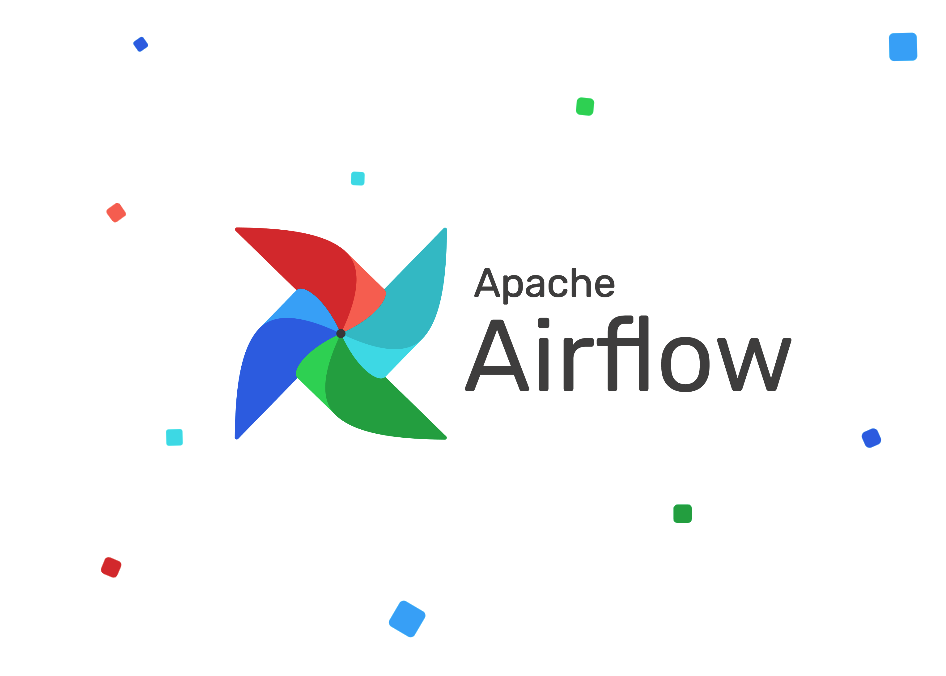
Apache Airflow is an open-source platform designed to manage workflows, specifically data pipelines. It was created by Airbnb to handle their increasingly complex workflows and allows users to:
Define workflows using Python code. This makes them easier to maintain, collaborate on, and test.
Schedule workflows to run at specific times (e.g., daily) or based on events (e.g., a new file being added).
Monitor workflows as they run to see their progress and identify any issues.
Hands-on Practice:
Pre-requisite:
Docker Desktop should be installed.
Setup steps:
Go to Visual Studio Code and create virtual environment.

Create dags, logs, plugins and config folder.
mkdir -p ./dags ./logs ./plugins ./config echo -e "AIRFLOW_UID=$(id -u)" > .env
Get ‘
docker-compose.yamlwith the below curl command.
curl -LfO 'https://airflow.apache.org/docs/apache-airflow/2.10.4/docker-compose.yaml'Initialize the database
docker-compose up airflow-init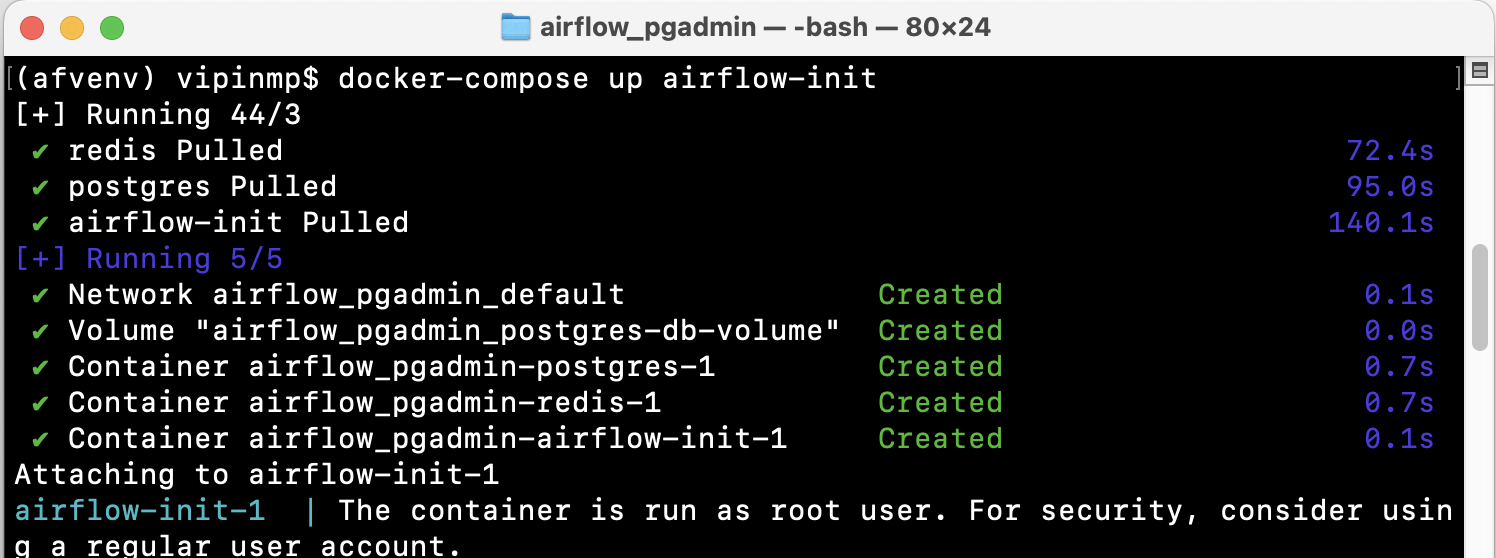
After initialization is complete, you should see a message like this:

The account created has the login airflow and the password airflow
Once the process is finished successfully, Docker Desktop will pull the following images.
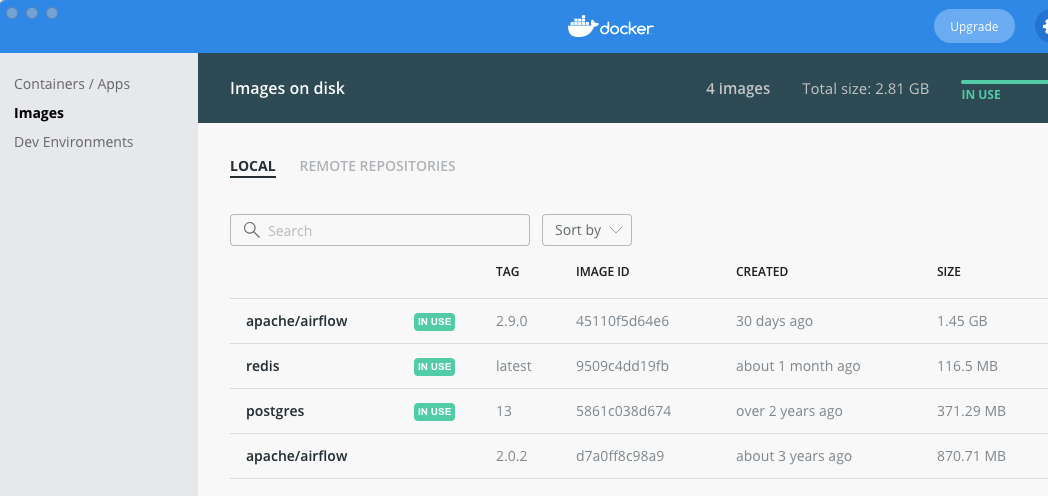
Running airflow
docker-compose upIn a second terminal you can check the condition of the containers and make sure that no containers are in an unhealthy condition:
docker ps
Accessing the environment After starting Airflow, you can interact via a browser using the web interface.
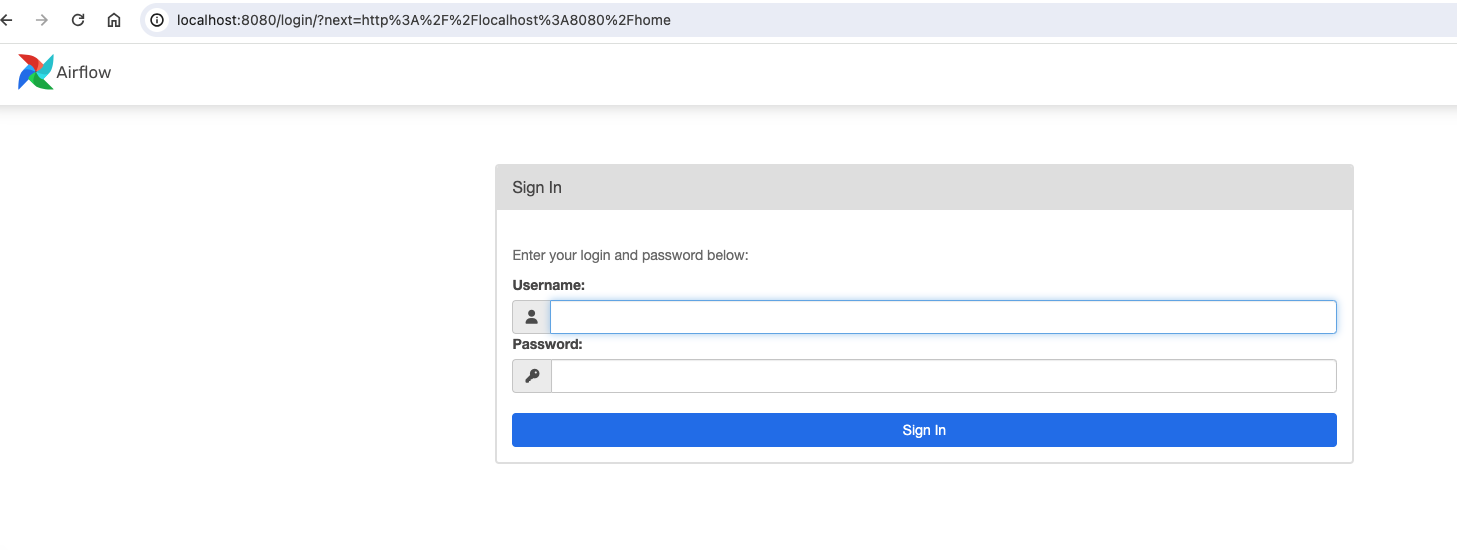
Login with username: airflow and password: airflow
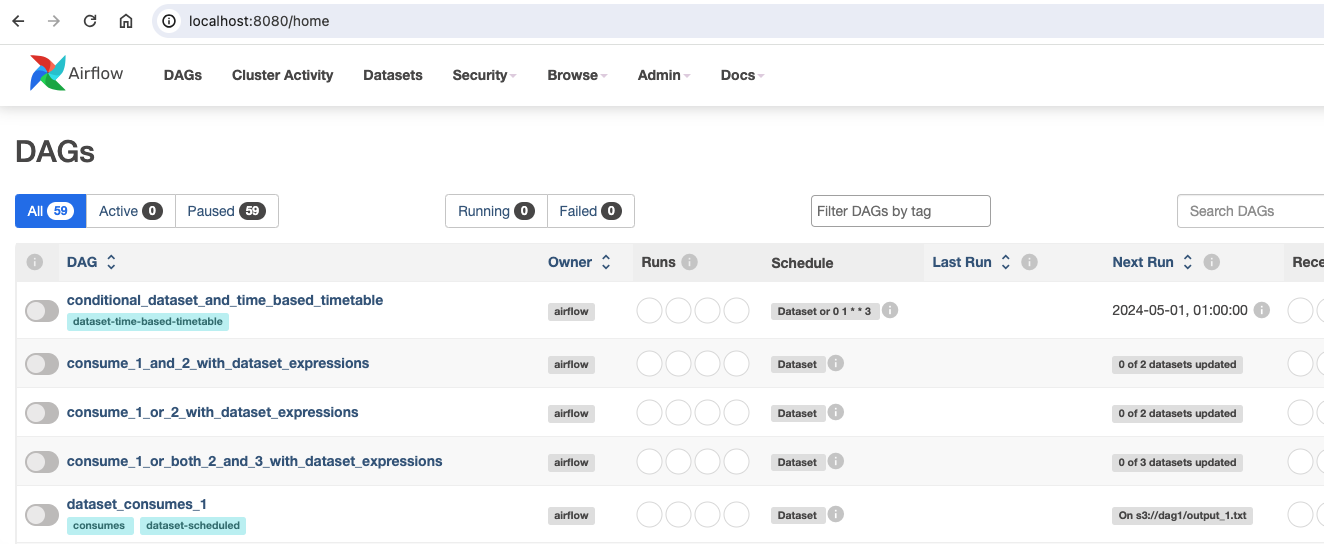
Troubleshooting tips:
\>In case you come across the below error
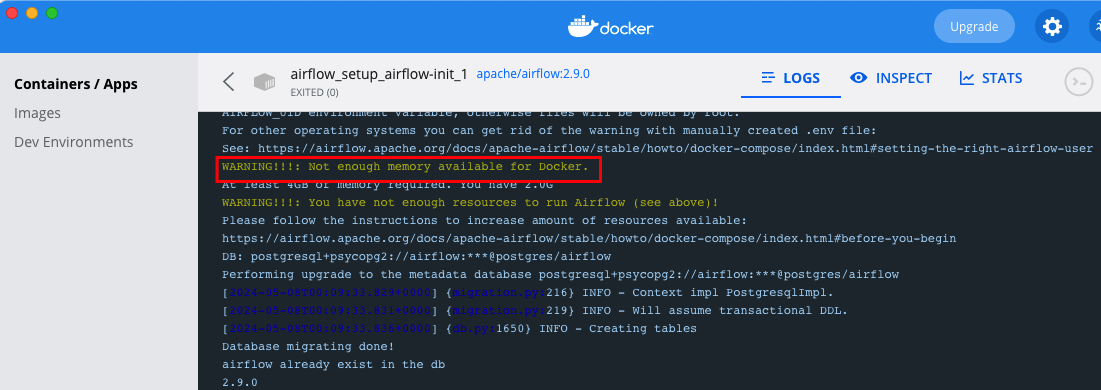
\>Go to the resource section and increase the memory size
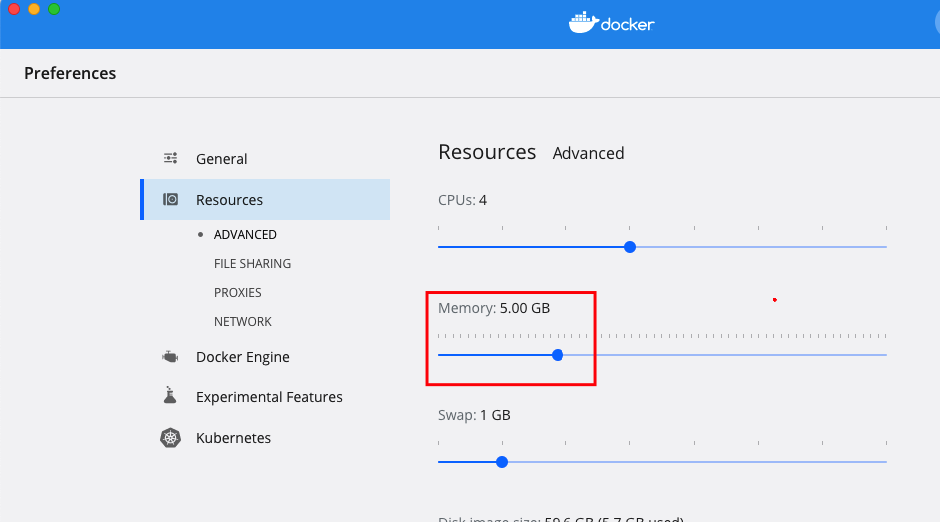
Subscribe to my newsletter
Read articles from Vipin directly inside your inbox. Subscribe to the newsletter, and don't miss out.
Written by

Vipin
Vipin
Highly skilled Data Test Automation professional with over 10 years of experience in data quality assurance and software testing. Proven ability to design, execute, and automate testing across the entire SDLC (Software Development Life Cycle) utilizing Agile and Waterfall methodologies. Expertise in End-to-End DWBI project testing and experience working in GCP, AWS, and Azure cloud environments. Proficient in SQL and Python scripting for data test automation.